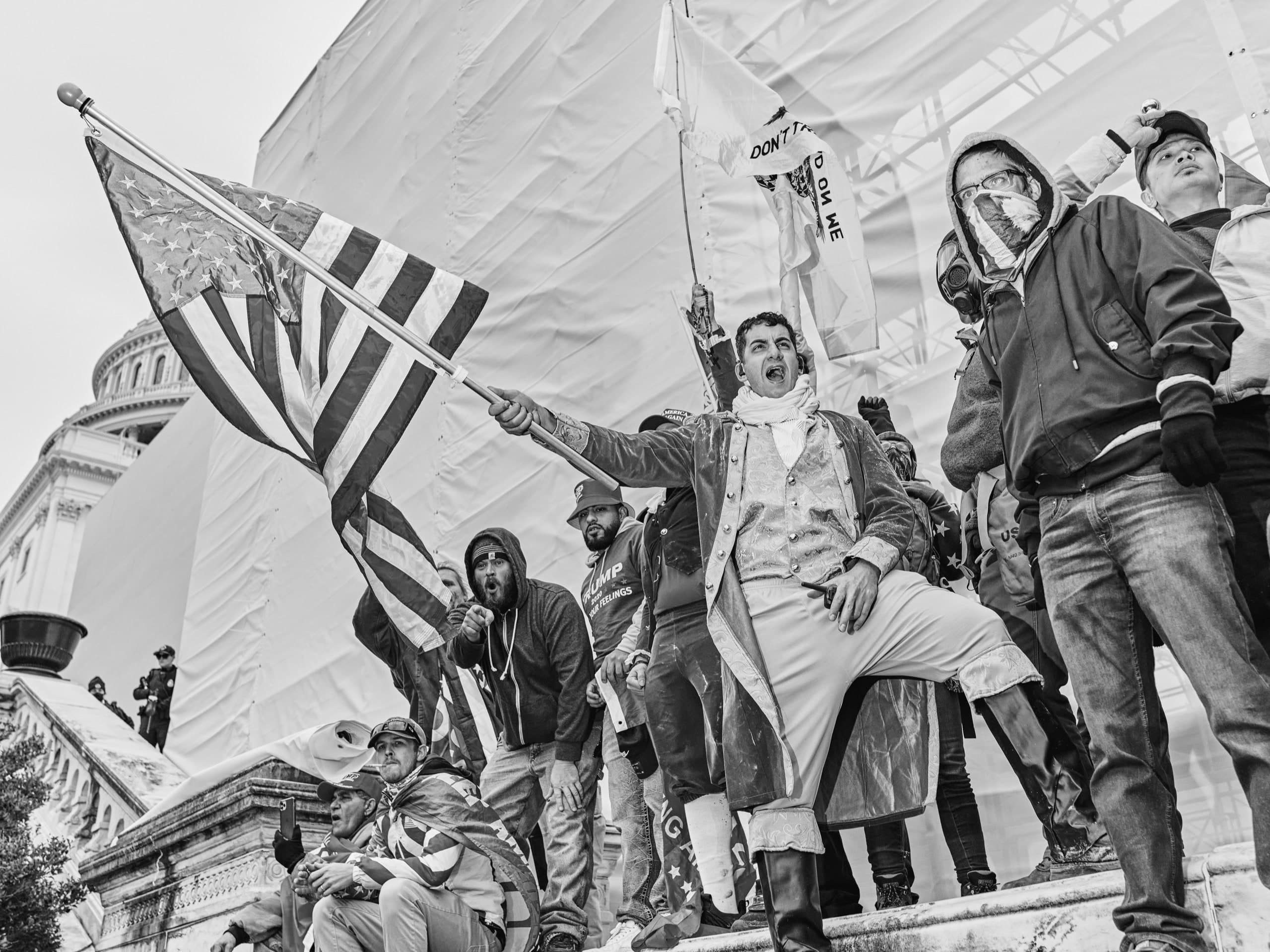Birkenstock Warns in Ipo Filing That Knock-Offs on Facebook are a Top Risk
Birkenstock warns of Facebook knock-off risks in IPO filing. The company highlights the threat posed by counterfeit products on the social media platform.
In its IPO filing, Birkenstock has raised concerns about the presence of knock-off products on Facebook, identifying it as one of the key risks it faces. The popular footwear brand has become known for its signature cork footbeds and high-quality materials, making it a target for counterfeiters.
In recent years, Birkenstock has taken legal action against several entities for trademark infringement and the sale of counterfeit goods. As Facebook continues to be a popular platform for online shopping, the company acknowledges the risk of customers unknowingly purchasing fake Birkenstock products. With its IPO launch imminent, Birkenstock aims to address these concerns and protect its brand value in the face of increasing knock-off proliferation on social media platforms.
Understanding The Impact On Birkenstock’S Ipo
Birkenstock’s IPO filing highlights the significant risk posed by knock-offs on Facebook, signaling potential implications for the company’s market entry. Considering the increasing prevalence of counterfeit products, Birkenstock seeks to address this challenge for its upcoming IPO while emphasizing the importance of protecting its brand.
The Growing Concern For Birkenstock
- The iconic footwear brand, Birkenstock, has raised a red flag in its recent IPO filing with regards to knock-offs being sold on Facebook.
- As consumers increasingly turn to social media platforms for shopping, Birkenstock has identified this as a significant risk that could impact its IPO.
- The rise of counterfeit products on Facebook poses a serious threat to the brand’s reputation and financial performance.
- Birkenstock is taking this issue seriously, highlighting the need for stringent measures to protect its intellectual property rights.
Potential Consequences For The Ipo
- Birkenstock’s IPO could face several negative implications as a result of the knock-off products on Facebook.
- Here are the potential consequences that the brand is wary of:
- Dilution of brand value: Knock-off products not only compromise Birkenstock’s reputation but also undercut its pricing, leading to a dilution of the brand’s value in consumers’ minds.
- Lost revenue: The presence of low-cost imitations can divert sales away from Birkenstock’s genuine products, resulting in significant revenue losses.
- Legal battles: Birkenstock could be compelled to engage in legal battles to protect its intellectual property rights, incurring costly legal expenses and diverting the company’s focus away from its core operations.
- Consumer trust erosion: Counterfeit products can erode the trust consumers have in Birkenstock, damaging the brand’s long-term relationships and loyalty with its customer base.
- Negative impact on stock performance: The uncertainty surrounding the knock-off issue may create doubts among potential investors, negatively impacting Birkenstock’s stock performance in the IPO.
These potential consequences highlight the importance of Birkenstock addressing the issue of knock-offs on Facebook to ensure a successful IPO and protect its brand’s integrity. The company must tackle this risk head-on by implementing robust strategies to combat counterfeiting and safeguard its market position.
Facebook’S Role In The Sale Of Knock-Offs
Facebook’s role in the sale of knock-offs is a major concern for Birkenstock, as highlighted in their IPO filing. The presence of counterfeit products on the platform poses a significant risk and requires careful attention to protect brand integrity.
The Rise Of Counterfeit Products On Facebook
- Facebook has become a popular platform for the sale of counterfeit products, posing a significant challenge for companies like Birkenstock.
- Counterfeiters take advantage of the wide reach and vast user base of Facebook to promote and sell their knock-off products.
- The ease of setting up online shops on Facebook makes it an attractive platform for counterfeiters, who can quickly create new pages to sell their fraudulent goods.
- Knock-offs of Birkenstock products are particularly prevalent on Facebook, with many sellers offering fake versions of the iconic sandals at lower prices.
- The rise of counterfeit products on Facebook not only impacts genuine businesses like Birkenstock but also poses a risk to consumer safety, as these knock-offs are often of inferior quality and may even pose health hazards.
Birkenstock’S Struggle To Combat These Knock-Offs
- Birkenstock has been actively taking measures to combat the sale of knock-offs on Facebook, but it has proven to be a challenging task.
- The company regularly monitors Facebook for fake listings and works closely with the platform to remove counterfeit product listings promptly.
- However, the sheer volume of counterfeit listings on Facebook makes it difficult for Birkenstock to completely eradicate the problem.
- Birkenstock has also implemented educational campaigns to raise awareness among consumers about the dangers of purchasing counterfeit products on Facebook.
- The company actively engages with its customers on social media, providing them with information on how to identify genuine Birkenstock products and avoid purchasing fakes.
By acknowledging the role Facebook plays in the sale of knock-offs and understanding Birkenstock’s struggle to combat this issue, it becomes evident that the problem necessitates further action. The rise of counterfeit products on Facebook not only affects the business of genuine brands like Birkenstock but also poses risks to consumers who unknowingly purchase these knock-offs.
Legal And Regulatory Challenges Faced By Birkenstock
Birkenstock’s IPO filing highlights the legal and regulatory challenges it faces, with knock-offs on Facebook identified as a major risk. The company is concerned about the increasing number of counterfeit products being sold on the platform, posing a threat to its brand and reputation.
Birkenstock, the renowned German footwear company, has recently filed for an initial public offering (IPO) and highlighted the challenges it faces in relation to legal and regulatory issues. In their IPO filing, Birkenstock specifically pointed out the risks associated with knock-offs being sold on Facebook, which poses a threat to its intellectual property rights.
In addition, the company also acknowledged the potential lawsuits and the costs incurred in litigation. Let’s dive deeper into these challenges faced by Birkenstock:
Intellectual Property Rights And Infringement Issues:
- Counterfeit Birkenstock products being sold on Facebook: Birkenstock has raised concerns about knock-offs of their iconic shoes being sold on the popular social media platform. These fakes not only undermine the brand’s image, but also pose a significant risk to their intellectual property rights.
- Protecting brand identity and trademarks: Birkenstock needs to safeguard its brand identity and trademarks from infringement. Unauthorized use of their logo or any other trademark could have severe repercussions on their reputation and bottom line.
- Copyright infringement: Birkenstock’s designs and patented technologies are valuable assets that need to be safeguarded. Instances of copyright infringement can damage the company’s ability to protect its unique shoe designs and innovative features.
Lawsuits And The Cost Of Litigation:
- Patents and copyright disputes: As a market leader, Birkenstock is not immune to legal battles over patents and copyrights. Disputes related to their footwear designs, manufacturing methods, or advertising campaigns can lead to expensive litigation processes.
- Enforcement of intellectual property rights: Birkenstock may need to take legal action to protect their intellectual property rights. This can involve costly lawsuits against individuals or companies involved in the production or sale of counterfeit products, as well as pursuing legal remedies for patent or trademark infringement.
- Financial implications: Litigation can be a drain on resources for any company. The costs associated with legal proceedings, including attorney fees, court fees, and settlements, can place a significant financial burden on Birkenstock.
Birkenstock’s IPO filing has shed light on the legal and regulatory challenges it faces in protecting its intellectual property rights and dealing with potential lawsuits. The presence of knock-offs on Facebook and the costs of litigation are key concerns for the company.
By addressing these challenges head-on, Birkenstock aims to safeguard its brand reputation, maintain control over its designs, and continue providing high-quality footwear to its loyal customers.
The Impact On Brand Reputation And Customer Trust
In its IPO filing, Birkenstock highlights the risk of counterfeit products on Facebook, stressing the potential detrimental impact on brand reputation and customer trust. This situation raises concerns about the authenticity of Birkenstock products and the loss of consumer confidence in the brand, emphasizing the importance of ensuring the market’s trust.
Birkenstock’s recent IPO filing has shed light on a significant risk that the company faces – the presence of knock-offs on Facebook. This emerging threat not only poses a risk to the company’s financial performance, but it also has a direct impact on Birkenstock’s brand reputation and customer trust.
In this section, we will explore the negative effects on brand image and perception as well as the potential loss of consumer confidence and loyalty.
Negative Effects On Brand Image And Perception:
- Dilutes brand authenticity and uniqueness: The presence of knock-off Birkenstock products on Facebook raises questions about the brand’s exclusivity and authenticity. Customers may perceive the brand as less desirable if they can easily find cheaper imitations online.
- Undermines brand values and ethos: Birkenstock is known for its commitment to quality craftsmanship and sustainable practices. However, knock-off products often compromise on these values, leading to a tarnished perception of the brand among consumers.
- Creates confusion and distrust: With the abundance of knock-offs on Facebook, customers may find it challenging to distinguish between genuine Birkenstock products and counterfeit ones. This confusion can erode trust in the brand, making customers skeptical of purchasing Birkenstock products altogether.
Loss Of Consumer Confidence And Loyalty:
- Substandard product quality: Knock-off products are notorious for their poor quality and lack of durability. Customers who unknowingly purchase these counterfeits may experience disappointment, leading to a loss of trust in the brand.
- Negative user experiences: Customers who encounter issues with knock-off Birkenstock products may share their negative experiences online, further damaging the brand’s reputation. This can discourage potential customers from purchasing Birkenstock products and erode existing customers’ loyalty.
- Weakening of the brand-customer relationship: The presence of knock-offs undermines the bond between Birkenstock and its customers. Customers who invested in the brand due to its perceived quality and values may feel deceived and betrayed, causing them to seek alternatives and switch to competing brands.
The proliferation of knock-off Birkenstock products on Facebook poses significant risks to the brand’s reputation and customer trust. From diluting brand image and undermining brand values to causing confusion and loss of consumer confidence, the impact can be far-reaching. Birkenstock must address this issue promptly to protect its brand reputation and maintain its customers’ trust.
Strategies To Mitigate The Risk
Birkenstock’s IPO filing warns about the top risk of knock-offs on Facebook. Strategies to mitigate this risk include vigilant monitoring, reporting and taking legal action against counterfeit sellers.
Collaborating with Facebook to enforce stricter policies:
- Enhance cooperation: Birkenstock should work closely with Facebook to tackle the issue of counterfeit products.
- Strengthen guidelines: Implement more stringent policies and guidelines regarding the sale of Birkenstock knock-offs on Facebook.
- Monitoring: Regularly monitor and analyze the platform to identify any potential infringements or suspicious activities.
- Report and takedown: Establish a clear reporting system for users to report any instances of counterfeit Birkenstock products. Encourage Facebook to promptly review and take down such listings.
- Legal actions: Explore legal actions against repeat offenders to create a deterrent effect.
Educating consumers about counterfeit products:
- Awareness campaigns: Launch extensive educational campaigns to inform consumers about the risks associated with purchasing knock-off Birkenstock products on Facebook.
- Informative content: Create blog posts, articles, social media posts, and video content highlighting the differences between genuine Birkenstock products and counterfeits.
- Authenticity verification: Develop user-friendly tools or apps that allow consumers to verify the authenticity of Birkenstock products before making a purchase.
- Consumer reviews: Encourage customers to leave honest reviews about their buying experiences to foster trust and help others make informed decisions.
- Collaboration with influencers: Collaborate with influencers and brand ambassadors to spread awareness about counterfeit products and emphasize the importance of purchasing genuine Birkenstock items.
By collaborating with Facebook to enforce stricter policies and educating consumers about the dangers of counterfeit products, Birkenstock can reduce the risk of knock-offs being sold on the platform. These strategies provide a multi-pronged approach to protect both the brand’s reputation and consumers’ interests.
The Evolution Of E-Commerce Risks
Birkenstock’s IPO filing highlights the increasing risks of knock-off products sold on Facebook, underscoring the evolving challenges in the e-commerce landscape. The company warns of the growing threat to their brand from counterfeit items, emphasizing the need for effective measures to combat this issue.
The Changing Landscape Of Online Marketplaces
In today’s rapidly evolving digital landscape, online marketplaces have become a primary driver of e-commerce. However, this shift in consumer behavior has also given rise to new challenges and risks for brands and businesses. As the marketplace ecosystem continues to expand and adapt, it is crucial for companies to stay abreast of these changes and proactively protect their intellectual property.
Adapting To New Challenges And Protecting Intellectual Property
To effectively navigate the changing landscape of online marketplaces, businesses must adapt their strategies to mitigate risks and safeguard their intellectual property. Here are a few key considerations to keep in mind:
- Proactive monitoring: Regularly monitor online platforms, including social media and e-commerce websites, to identify potential knock-off products or unauthorized sellers.
- Enforcement actions: Take swift and decisive action against infringing sellers, such as sending cease-and-desist letters or filing intellectual property infringement claims.
- Brand preservation: Educate consumers about the value and authenticity of your products through informative and engaging content. This will not only build brand loyalty but also deter customers from purchasing counterfeit goods.
- Legal protections: Obtain trademarks, copyrights, and patents to establish legal rights and protections for your brand and products. These legal safeguards can serve as powerful tools in combating counterfeit merchandise.
- Partnerships: Collaborate with reputable online marketplaces to establish partnerships that prioritize brand protection. This can include implementing strict seller verification processes and establishing mechanisms to report counterfeit listings.
In this ever-changing e-commerce landscape, businesses need to be proactive in identifying and combating the risks associated with counterfeit products on online marketplaces. By staying vigilant, implementing comprehensive strategies, and leveraging legal protections, brands and businesses can safeguard their intellectual property and maintain their competitive edge.

Credit: www.britannica.com
Frequently Asked Questions For Birkenstock Warns In Ipo Filing That Knock-Offs On Facebook Are A Top Risk
What Is The Top Risk Highlighted By Birkenstock In Their Ipo Filing?
Birkenstock warns that knock-offs on Facebook pose a significant risk to their business.
How Does Birkenstock Plan To Address The Issue Of Knock-Offs On Facebook?
Birkenstock is likely to implement strategies, such as monitoring and reporting counterfeit products on Facebook, to combat the knock-off problem.
Why Are Knock-Offs On Facebook Considered A Risk For Birkenstock?
Knock-offs on Facebook can harm Birkenstock’s brand reputation, result in loss of revenue, and deceive customers with substandard products.
What Steps Can Consumers Take To Avoid Purchasing Knock-Offs On Facebook?
To avoid knock-offs on Facebook, consumers should buy from authorized sellers, check for product authenticity, and read reviews before making a purchase.
Conclusion
In light of Birkenstock’s recent IPO filing, it is abundantly clear that the presence of knock-offs on Facebook poses a significant risk to the company’s success. Birkenstock’s concern regarding trademark infringements and counterfeits is valid, considering the platform’s enormous user base and the potential reach of these knock-offs.
As more and more people turn to social media platforms for their shopping needs, it is imperative for brands like Birkenstock to tackle this issue head-on. The rapid proliferation of knock-offs not only undermines the reputation and hard work of established brands but also poses a serious threat to consumer trust and safety.
It is crucial for social media platforms to introduce stricter guidelines and implement effective measures to combat counterfeits. Furthermore, consumers need to be educated about the risks associated with purchasing knock-offs and urged to support authentic, responsible brands like Birkenstock.
By fostering a collaborative effort between brand owners, consumers, and social media platforms, we can work towards a safer and more trustworthy online shopping experience.














Post Comment